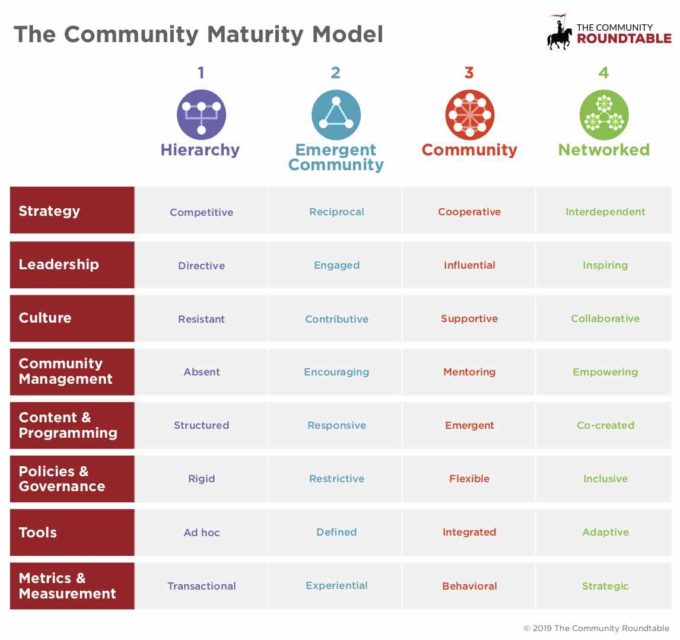Community management is becoming a lot more common at all sorts of organizations – driven by adoption of people doing more and more online and the social media tools that allow for easy conversation and collaboration. As that happens, however, there is a lot of friction due to lack of standards – not just technical standards but also standard expectations and understanding of what community management is and what should be expected of it.
This lack of standards is causing a lot of friction and frustration – particularly for community managers themselves. Companies have bought intosocial media and online community to the extent that they think it’s important and have put some resources into funding community management positions and tools to enable community but there is still a lot of uncertainty about what to expect of both the roles and the tools. That lack of clear articulation can create a lot of pressure and/or missed expectations for community managers.
One of our missions at The Community Roundtable is to further the discipline of community management – not just in our own community but more broadly in the marketplace. Our first effort to define the discipline is our Community Maturity Model:
This model does two things. First, it defines the eight competencies we think are required for successful community management. Second, it attempts – at a high level – to articulate how these competencies progress from organizations without community management that are still highly hierarchical to those that have embraced a networked business ecosystem approach to their entire organization. We use this model in a number of ways:
- As a mental model for understanding all the areas and skill sets required for community management and hopefully, to remind community managers that it is about assembling a internal team to gather all the required skills – not to try and be the expert in all of them individually
- As a tool for community managers to educate and set the expectations of colleagues and advocates within the organization
- As a roadmap for community managers looking to understand what is important to do given their current state of evolution, and in what order
- To organize content, programing, and conversations within The Community Roundtable
- As a way to categorize and find best practices and case studies – we will be working with our members on both Quick Cases (techniques and methodologies) as well as full case studies and be matching those with the appropriate box on the matrix
- As a good model over the long term to develop training
While the Community Maturity Model is something that is core to our services, we also want to ‘open source’ it for those that find it useful. Feel free to use it either for internal or external presentations – we just ask that you attribute it back to The Community Roundtable.

